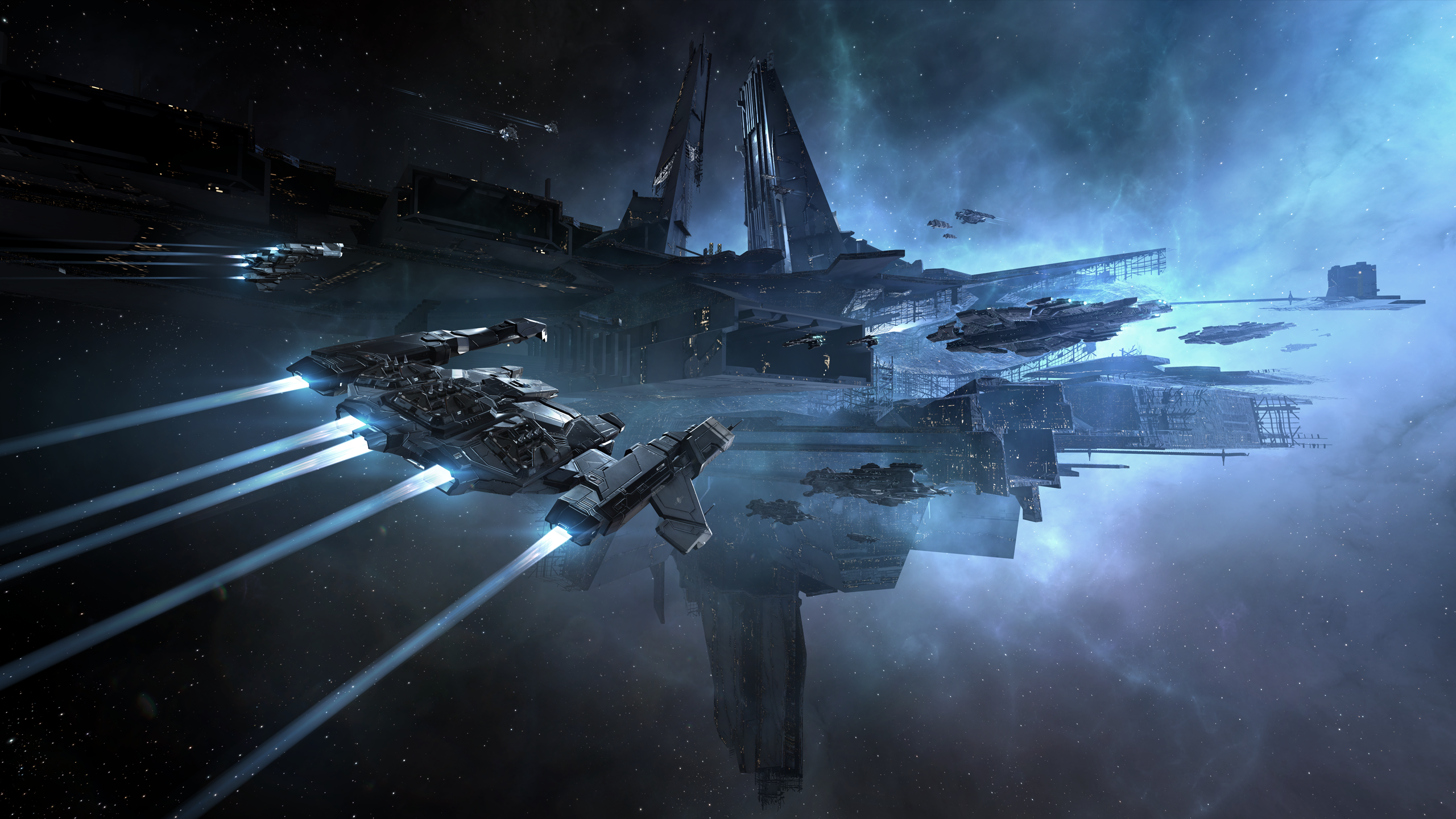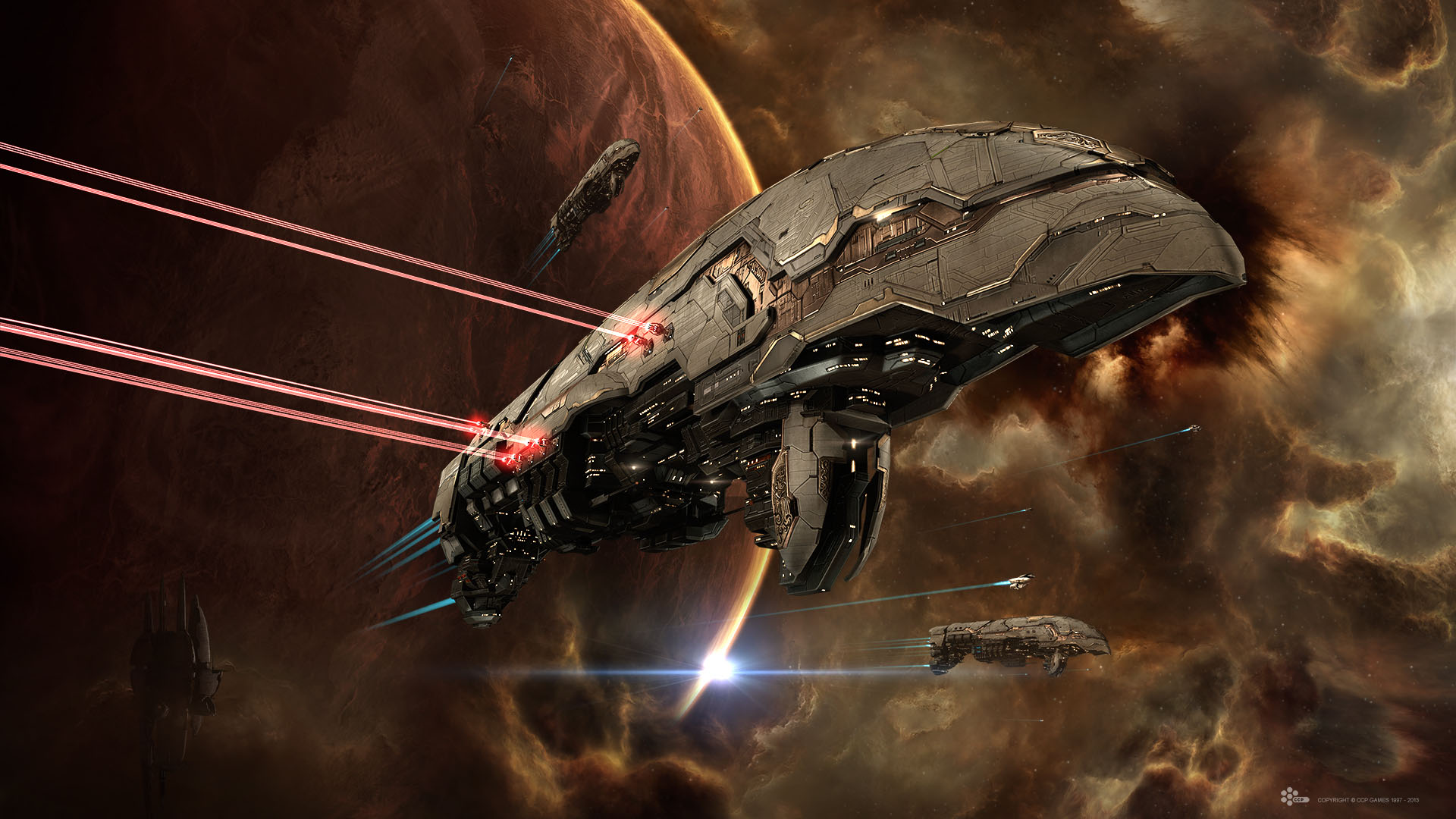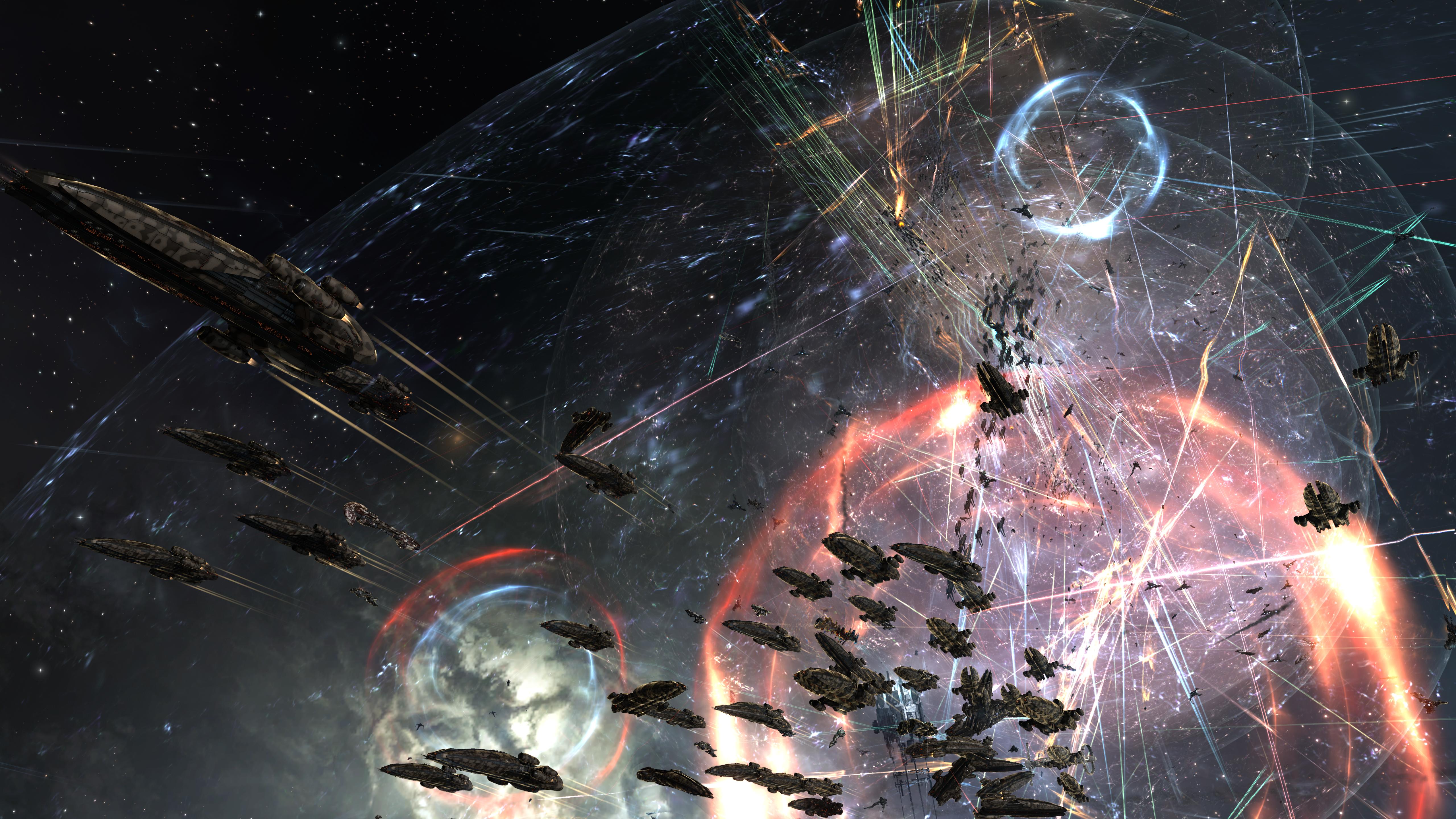The future of EVE Online
CCP on going free-to-play, the future of its long-running space MMO, and the challenge of attracting new players.

In November last year, after 13 years of requiring a paid subscription, EVE Online went free-to-play. Free accounts have some limitations, while players who pay $10/£7 a month get access to all of the game’s skills and spaceships. It was a big step for the long-running space MMO, and I ask executive producer Andie Nordgren about the decision and its impact on the game.
“We put our trust in the community on the line to do it,” she says. “It took a lot of thought about how to design it and also how to communicate it. People who read our information first, about how the clone states work, they understood it and didn’t react badly.”
There are two clone states in EVE Online: Alpha and Omega. Alpha is the base state for all players, granting access to New Eden and a limited selection of ships. But upgrade to Omega and you’ll get access to every ship and skill, as well as faster skill training. It’s basically a premium account.
“But those people who only saw the headlines about EVE going free-to-play were like “Nooo!” Then they learned more about how it all works and were like, oh, okay, I get it now. And once people understood what it was, the community reception was actually really good.”
“It’s still early days,” says CCP’s long-serving CEO Hilmar Veigar Pétursson. “Making EVE free-to-play was just the first step. This will take years to master, and we went into it knowing that. There was some worry, and it was dangerous. But we said to ourselves: we can’t not do it just because we’re afraid. The world is changing, and we have to as well."

Going free-to-play will take years to master, and we knew that going in
Pétursson notes that EVE is not, and never will be, finished. He describes it as a science experiment, and says CCP has to keep pushing it as far as they can. He also thinks of EVE not as a traditional game with a playerbase, but as a city that CCP runs, but doesn’t control every aspect of. “It’s not a country, but a city. It has citizens who pay tax and move in and out.”
I suggest to Pétursson that it’s like China’s infamous Kowloon Walled City, a self-contained metropolis that was only loosely governed and developed its own complex infrastructure and politics. “That’s a great metaphor, actually,” he says. “There’s traffic jams, the toilets have to work. Running a city is not very glorious. We’re like the janitors of EVE.”
“Shifting to free-to-play is everything we hoped for,” says Eðvald Ingi Gíslason, CCP’s data scientist, who’s responsible for overseeing the game’s economy, among other things. “It’s important to keep people playing, so adding a free tier helped with that. And it opened it up to a wider audience. There’s a huge market of people who don’t want to subscribe to play a game, and we’ve seen a massive boost since the change.”
New players also means new money, and I ask Gíslason how the surge of new capsuleers in New Eden has affected the economy. “They’re definitely participating like anyone. Doing trading, manufacturing, etc. So it’s really helped the economy to have this extra boost of activity.”
Gíslason explains that encouraging players not to settle into a comfortable routine is key to keep the economy going. “We want to shake things up,” he says. “When we see things settling down, we step in. If no wars going on for some time, and everything is stable, then we add some new gameplay to encourage players to leave their comfort zone.”
EVE is notoriously difficult to get into, a fact CCP is fully aware of. “This is not a game you just suddenly decide to play,” says Nordgren. “It takes a while to get stuck in, which makes it more like a hobby. It’s like getting into cycling or golfing or something like that. You don’t immediately just get into it. You have a friend who brings you along and you try it, then maybe you consider getting your own equipment, and so on. It’s a slow process.”

CCP considers EVE to be more like a virtual world than a traditonal game
“There’s a lot we can do to make it more accessible. There are lots of great activities in the game, but they can be obscure or difficult to find. Most games are much smaller in scope, but EVE does a lot of things at once.”
CCP considers EVE to be more like a virtual word than a traditional game, and with something that complex there’s a lot to learn. “There are a lot of basic competencies to learn for many different activities,” says Nordgren. “And in that sense it’s like a hobby. You’re not expected to get into it straight away.”
In EVE there are alliances devoted to helping new players get into the game, including EVE University and Brave Newbies. I ask Nordgren how important these are to helping CCP keep players in the game.
“It’s like finding a sports club,” she says. “But we want to make the connection between players and those groups a lot better. We have a corp finder, but you have to learn to use that properly to even get started. So we could do a better job of integrating that into the game, especially for newbies.”
“Solo players are important too,” says Nordgren. “It shouldn’t be required to be on comms with people. You shouldn’t have to join a corporation. It’ll never be a single-player game, because there are always people around you. We don’t want to focus on corp play at the expense of solo.”
“We won’t be massively changing EVE,” says Pétursson. “But we do want to add new ways of playing it to suit different kinds of players. We also want to improve the new player experience, which we’ve already taken steps towards. But we want to improve it even more.”
I ask Pétursson if the steps CCP is taking to add more variety to the game is an attempt to open it up to as many people as possible, almost to fight back against the sense that it’s a closed city dedicated to an elite playerbase.
“EVE will never be a game for everyone,” he says. “It’s impractical, and it’s not really interesting. It’s a game for a certain type of gamer. I think it could be accessible to a larger number of people, but pleasing everyone is not one of our goals. The game will always be dangerous and seen as something of an outsider, which attracts a certain type of audience.”

The professionals are the most elite player, and involved in almost everything in EVE
But what about the people actually playing the game regularly? I ask Gíslason what he’s managed to discern from his studies of the data about how people spend their days in New Eden.
“From our research, there are five key personas,” he says. “There’s the professional, who’s the most elite player, involved in almost everything in EVE. Manufacturing, PVP, mining, and social activity. Then there’s entrepreneur, who’s similar, but more focused on industry.”
“Aggressors are what most people would consider pirates. They’re highly engaged with the game and more focused on PVP than the other personas. And social players spend most of their time interacting with their friends, and they aren’t really that active on top of that.”
“And then there’s the biggest chunk of the playerbase, which are the traditional players. They’re not really seeking out group activities. They just want to mind their own business, either in small groups or alone. They only play EVE for an hour at a time, without having to rely on the social side of things.”
And traditional players are the kind most likely to have periods of high activity in EVE, then long periods of low activity. “It could be their personal life gets in the way, or they just get bored. And these players don’t really leave, they just go dormant for a while. Then they’ll come back a few months later.”
Another stumbling block for a lot of players is EVE’s reputation as a challenging, slightly scary place to lead a virtual life. Stories of espionage, scammers, and piracy make it seem more intimidating than it perhaps is. I ask Pétursson if he thinks this makes it harder to attract new people.
“EVE has become legendary,” he says. “It boggles some people’s mind that a game from 2003 is still around and still kicking ass. This reputation isn’t something we need to fight. That’s the magic of the game, that this kind of thing can happen in our universe.”
Keep up to date with the most important stories and the best deals, as picked by the PC Gamer team.
If it’s set in space, Andy will probably write about it. He loves sci-fi, adventure games, taking screenshots, Twin Peaks, weird sims, Alien: Isolation, and anything with a good story.


